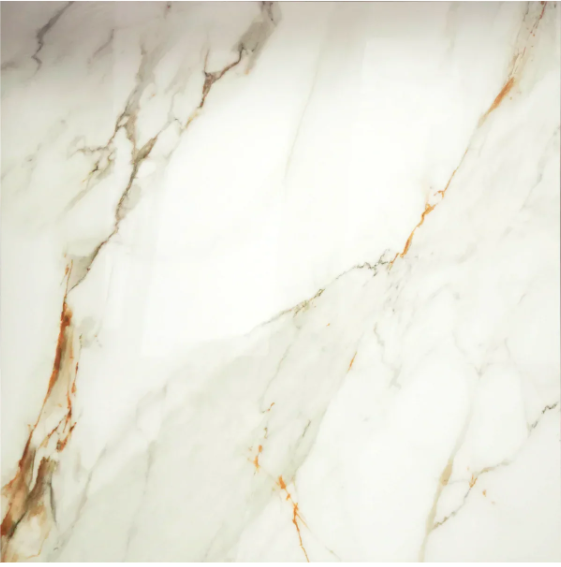Ceramic tiles have long been a popular choice for flooring, walls, and decorative surfaces in homes and commercial spaces around the world. Known for their durability, versatility, and aesthetic appeal, ceramic tiles offer a practical solution for a wide variety of design needs. This article explores what Ceramic tiles are, their types, benefits, applications, and tips for maintenance.
What Are Ceramic Tiles?
Ceramic tiles are made from natural clay, sand, and other minerals, which are shaped and then fired at high temperatures in a kiln. This firing process hardens the tiles and makes them resistant to water and wear. The surface of ceramic tiles can be glazed or unglazed, giving them different finishes and properties.
The glaze is a glass-like coating that seals the tile, making it less porous and more resistant to stains and moisture. Unglazed tiles tend to have a more natural, matte finish and require sealing to prevent water absorption.
Types of Ceramic Tiles
There are several types of ceramic tiles, each with unique characteristics:
- Glazed Ceramic Tiles: These tiles have a protective glaze coating. The glaze can be glossy, matte, or textured and is available in countless colors and patterns. Glazed tiles are ideal for walls and areas with light foot traffic.
- Unglazed Ceramic Tiles: Without a glaze, these tiles are more porous and tend to have a natural appearance. They are often used for flooring in low-moisture areas and require sealing.
- Porcelain Tiles: A subtype of ceramic tiles, porcelain tiles are made from finer clay and fired at higher temperatures. This makes them denser, more durable, and less porous than standard ceramic tiles. Porcelain is excellent for high-traffic areas and outdoor use.
- Terracotta Tiles: These are unglazed ceramic tiles made from red or brown clay, with a rustic, earthy look. They are commonly used for patios and traditional design themes.
Benefits of Ceramic Tiles
Ceramic tiles offer several advantages, making them a favored choice among architects, designers, and homeowners:
- Durability: Ceramic tiles are tough and long-lasting. They resist scratches, stains, and wear, making them suitable for both residential and commercial spaces.
- Water Resistance: Glazed ceramic tiles have a protective surface that repels water, ideal for bathrooms, kitchens, and laundry areas.
- Low Maintenance: Ceramic tiles are easy to clean with basic sweeping and mopping. The glazed surface resists dirt and stains.
- Variety of Designs: They come in endless colors, shapes, sizes, and patterns, allowing for creative and customized designs.
- Cost-Effective: Compared to natural stone or hardwood flooring, ceramic tiles provide an affordable yet high-quality alternative.
- Hypoallergenic: Tiles do not trap dust, pollen, or other allergens, contributing to healthier indoor air quality.
- Heat Resistance: Ceramic tiles withstand high temperatures, making them suitable for kitchen backsplashes and fireplace surrounds.
Applications of Ceramic Tiles
Ceramic tiles are versatile and used in many applications:
- Flooring: Widely used in kitchens, bathrooms, hallways, and commercial spaces due to their durability and ease of cleaning.
- Wall Coverings: Ideal for bathroom walls, kitchen backsplashes, and decorative feature walls.
- Countertops: Some ceramic tiles can be used for countertops, offering heat resistance and easy maintenance.
- Outdoor Spaces: Porcelain and some terracotta tiles are suitable for patios, walkways, and pool surrounds.
- Decorative Art: Mosaic ceramic tiles are used in artistic wall murals, fountains, and other decorative installations.
Maintenance Tips
Maintaining Ceramic tiles is straightforward, but a few practices help extend their life and appearance:
- Regular Cleaning: Sweep or vacuum to remove loose dirt, then mop with a mild detergent.
- Avoid Harsh Chemicals: Acidic or abrasive cleaners can damage the glaze. Use cleaners specifically designed for ceramic tiles.
- Seal Unglazed Tiles: Apply a sealant periodically to protect against moisture and stains.
- Prompt Spill Cleanup: Clean spills quickly to prevent staining, especially on unglazed surfaces.
- Grout Care: Keep grout lines clean and reseal grout periodically to prevent discoloration and mold growth.
Conclusion
Ceramic tiles are a practical, stylish, and affordable option for a wide range of architectural and interior design projects. Their strength, versatility, and aesthetic flexibility make them a timeless choice for flooring, walls, and decorative applications. Whether renovating a kitchen, designing a bathroom, or creating a stunning outdoor patio, ceramic tiles offer a durable surface that balances beauty and function.

